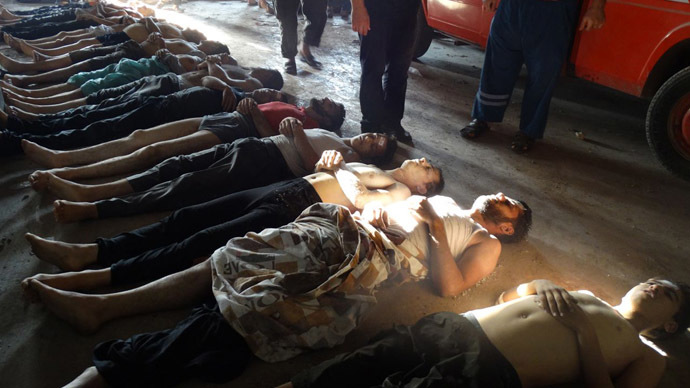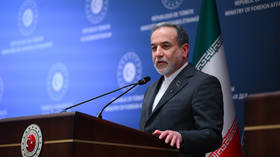Syrian chemical weapons deal prototype for Iranian agreement

The deal on placing Syrian chemical weapons under international control is where diplomacy can succeed, a strike would be the worst option according to Haaretz correspondent Gideon Levy. He told RT this should become an example for dealing with Iran.
As the rebel Free Syrian Army has again shot down diplomacy rejecting the proposal to put Syria's chemical arsenal under international control, Israeli journalist Gedeon Levy says it might not be the strongest organization among the Syrian opposition, as the Syrian rebels are many groups and organizations with no center.
RT:So the Syrian rebels have said 'no' to the chemical disarmament plans - Why do you think they've done this?
Gideon Levy: I don't know who you mean when you say 'Syrian rebels' because there is no such entity as Syrian rebels. There are many rebels and many organizations, part of them fighting one against the other, part of them puppets who stay outside, part of them all kind of Jihadists coming from all over the world. So I don't know on behalf of whom this was said. The Free Syrian Army is only one organization, I'm not sure it's the strongest one among the opposition. And in any case when you are desperate you look for any kind of provocation that might save you. I don't think it is serious to think that the opposition will attack Israel in order to complicate matters. Sounds too far-fetched. I don't think they have the capabilities to do this.
RT:Why has Damascus agreed to give away its strategic arsenal so easily?
GL: I think Damascus has to listen to Russia very carefully, because Russia now is almost the only ally of Damascus, of the regime. I think it's not for Damascus to decide, I think it was a Russian decision to go this way and the Assad regime had no other choice but to follow this road to save the regime.
RT:If the deal takes place - does it guarantee that there'll be no further use of chemical weapons in Syria?
GL: It's the best deal that anyone who is in it could dream about. It's exactly where diplomacy can succeed. I'm not sure you could have gotten the same outcome through a strike. It is, exactly if it will succeed, nobody can expect more than this. And by the way should be also the deal with Iran at another time.
RT:Why has President Obama decided to take a diplomatic break - he was so staunchly convinced that the strikes should take place?
GL: I'm not sure you are so convinced here, falling to this threat, I'm not sure that from the first place Obama wanted to complicate the US and the whole region in another war. And a limited strike - you know how it starts you never know how it continues and how it ends. And he had to save face because he was committed by his own words, his own red lines. But the moment he found any kind of ladder which will help him to get out of this trap he jumped on it and very rightly so, because finally the strike should have been the last option and most probably the worst one, for sure not the first one.
The statements, views and opinions expressed in this column are solely those of the author and do not necessarily represent those of RT.












